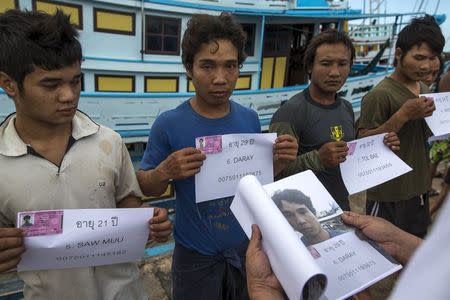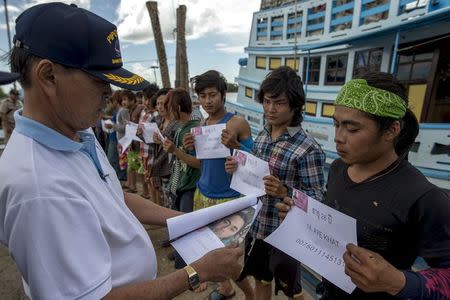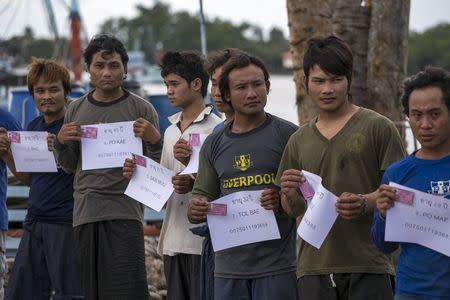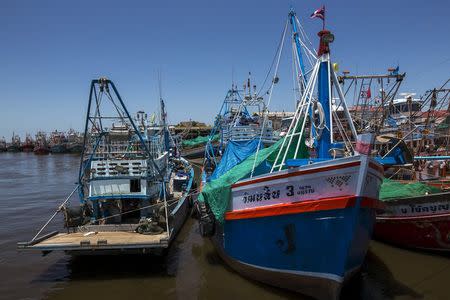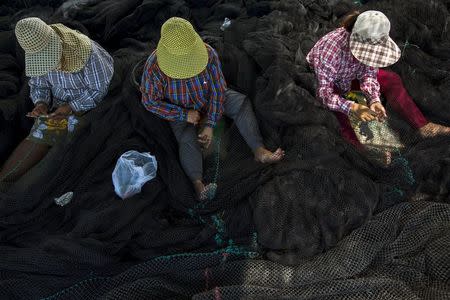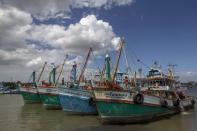Thai fishermen strike over new rules imposed after EU's warning
By Amy Sawitta Lefevre and Panarat Thepgumpanat BANGKOK (Reuters) - Fishermen in Thailand have gone on strike over new government regulations that took effect on Wednesday after the country was told by the European Union to clamp down on illegal fishing. Thailand, the world's third-largest seafood exporter, was given six months by the EU in April to crack down on illegal fishing or face a trade ban on its fish imports. Thailand's annual exports to the EU are estimated to be worth between 575 million to 730 million euros (408.41 million pounds-$518.00 million pounds). Overall fish exports were worth around $3 billion in 2014, according to the Thai Frozen Foods Association. Fishermen have gone on strike in 22 out of 76 provinces to protest against the new requirements being enforced, according to national fishing associations. Some have been unable to take their boats out to sea as they did not meet new regulations requiring all boats to have licenses, registered fishing equipment and navigation systems. Others said they feared being caught. Those who don't comply with the new regulations face up to three years in jail. Thailand's National Shippers' Council said around 40,000 vessels have been registered to date while 3,000 remain unregistered. Kamolsak Lertpaiboon, secretary-general of the Fishing Association of Thailand, said fishermen needed more time to comply with the new laws. "Many illegal fishing boats are owned by simple villagers who need to be trained and need funds to buy the required equipment," said Kamolsak. Prime Minister Prayuth Chan-ocha called for calm on Wednesday, and urged fishermen whose boats met the required standards to shun taking strike action. "We can't avoid this crack down because if we don't pass international assessment what will happen?" Prayuth told reporters. "Those vessels that can go out to fish must go." A high percentage of the Thai fishing fleet is unregistered and outside of government control, making it difficult to track vessels. Even registered vessels often sail without catch documentation and operation certificates. Wiriya Sirichaiekawat, vice-chairman of the National Fisheries Association of Thailand, feared a prolonged strike could lead to layoffs. Thailand's fishing industry employs more than 300,000 people, many of them illegal migrant workers from neighbouring countries. (Additional reporting by Jutarat Skulpichetrat in SAMUT SAKHON and Pracha Hariraksapitak and Khettiya Jittapong in BANGKOK; Editing by Simon Cameron-Moore)

 Yahoo News
Yahoo News 